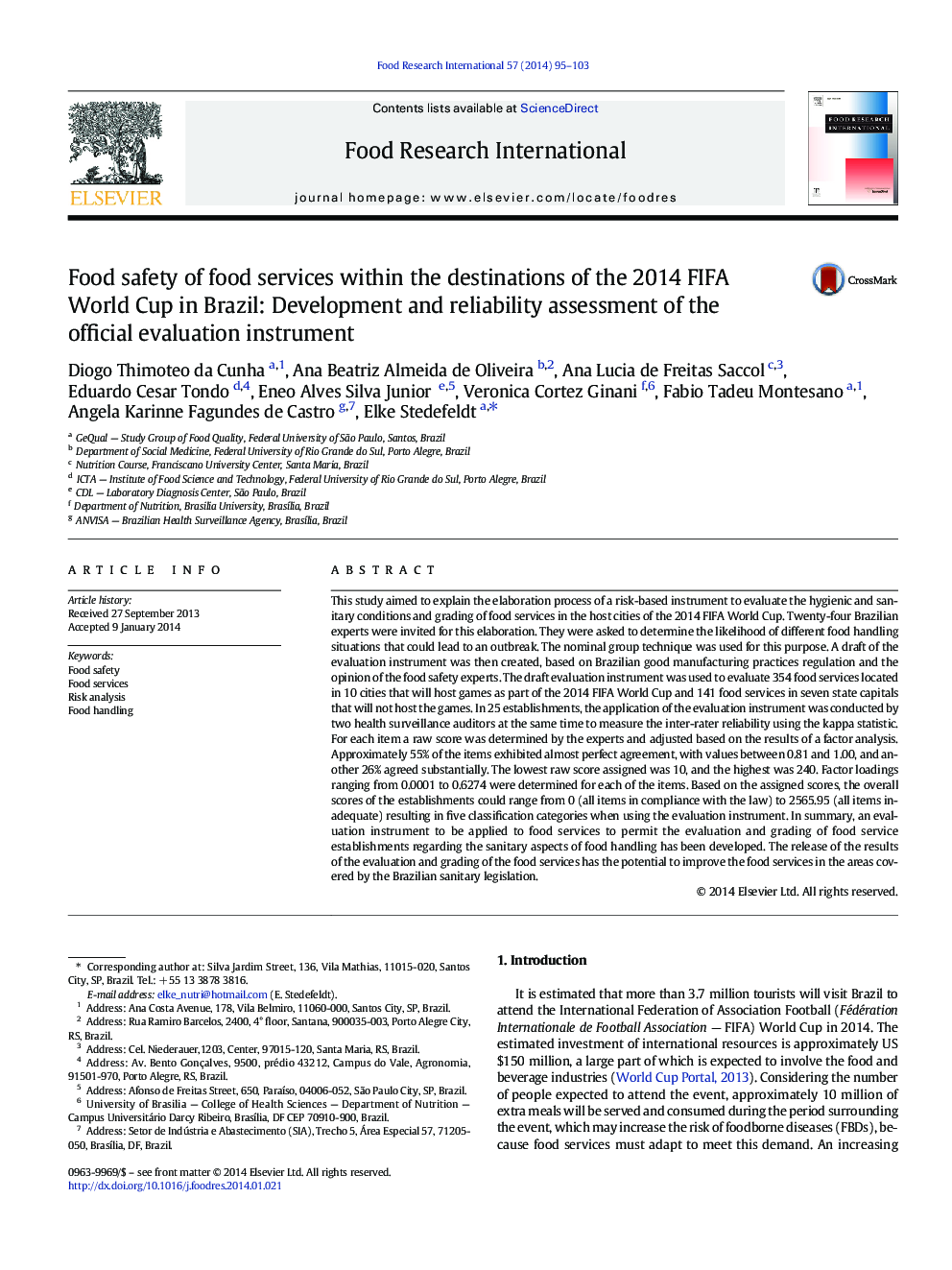| Article ID | Journal | Published Year | Pages | File Type |
|---|---|---|---|---|
| 6396789 | Food Research International | 2014 | 9 Pages |
â¢A risk-based instrument to evaluate the food safety was proposed.â¢Food services of cities that will host games of the 2014 World Cup were evaluated.â¢The instrument received factor loadings and presented high inter-rater reliability.â¢The Brazilian food services will receive a score and a grade.â¢These scores can motivate the adherence of food services to the sanitary laws.
This study aimed to explain the elaboration process of a risk-based instrument to evaluate the hygienic and sanitary conditions and grading of food services in the host cities of the 2014 FIFA World Cup. Twenty-four Brazilian experts were invited for this elaboration. They were asked to determine the likelihood of different food handling situations that could lead to an outbreak. The nominal group technique was used for this purpose. A draft of the evaluation instrument was then created, based on Brazilian good manufacturing practices regulation and the opinion of the food safety experts. The draft evaluation instrument was used to evaluate 354 food services located in 10 cities that will host games as part of the 2014 FIFA World Cup and 141 food services in seven state capitals that will not host the games. In 25 establishments, the application of the evaluation instrument was conducted by two health surveillance auditors at the same time to measure the inter-rater reliability using the kappa statistic. For each item a raw score was determined by the experts and adjusted based on the results of a factor analysis. Approximately 55% of the items exhibited almost perfect agreement, with values between 0.81 and 1.00, and another 26% agreed substantially. The lowest raw score assigned was 10, and the highest was 240. Factor loadings ranging from 0.0001 to 0.6274 were determined for each of the items. Based on the assigned scores, the overall scores of the establishments could range from 0 (all items in compliance with the law) to 2565.95 (all items inadequate) resulting in five classification categories when using the evaluation instrument. In summary, an evaluation instrument to be applied to food services to permit the evaluation and grading of food service establishments regarding the sanitary aspects of food handling has been developed. The release of the results of the evaluation and grading of the food services has the potential to improve the food services in the areas covered by the Brazilian sanitary legislation.
